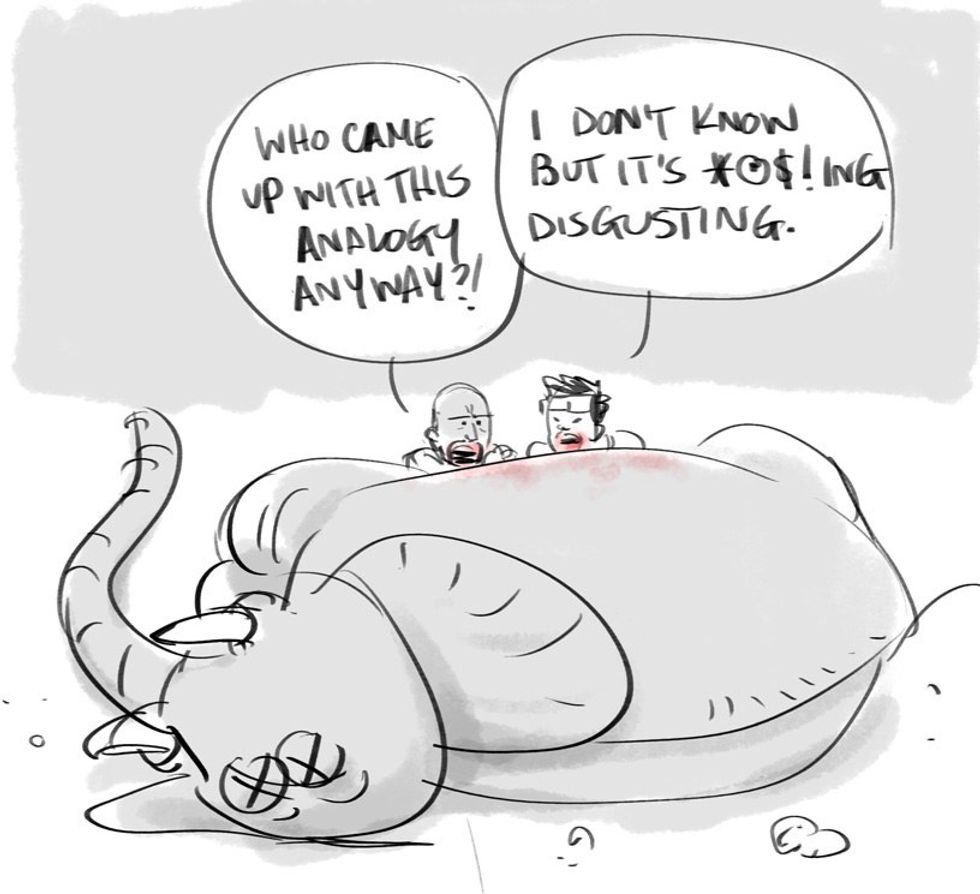Teenagers these days hold the weight of the world on their backs, especially considering that their world is purely academic. High schoolers feel as though they need countless advanced placement (AP) classes plus numerous extracurriculars. In fact, the high school I attend, Northview High School, is notorious for being extremely competitive, a title that comes with precarious success. Kids intent on scoring high for an upper level GPA are a little too willing to break ethical boundaries just to receive more points on a quiz or test.
Just a week ago, students were caught cheating by copying down answers to a reading quiz for the AP U.S. History course. This reading quiz, which has a relatively small impact on a student's grade, aims to capture how well a student knows the chapter. Students are allowed individual, handwritten notes to use during the quiz, but in an attempt to achieve a higher average, some chose to get answers from a peer and share notes with other friends. Now, our notes are being limited to only one page long.
As an AP U.S. History student who is now at a disadvantage, I could not help but feel further constrained by the tightening noose around my neck that is our education system. This was not the first (nor will it be the last) cheating scandal that occurred at Northview. We've had an entire class send pictures of a Spanish test on a group chat, faced common cases of plagiarism and even had some AP exam "difficulties."
But I know the student body. I know the typical Northview student. We're preoccupied with after school club meetings, daily sports practices, science fair projects, community service and so many other hobbies that we do not get a chance to finish our bucket-load of homework every night. The amount of pressure placed on those dedicated students, along with prodding from equally motivated parents, can prompt adolescents to take risky shortcuts to get good grades with less effort.
And honestly, I can sympathize. Teenagers are expected to do many things without showing signs of strain or unhappiness, but adults and administrators should remember that we are humans, too. We have our limits, we have a breaking point that we can reach if we suffer from sleep deprivation or learning disabilities. Colleges use the holistic approach to see if their candidates are intelligent, but are they really measuring smartness? All they see are numbers that suddenly define who we are . . . but they should not. We are so much more than an 85 or a 95. Our creativity and our passions and how we show them are more important than mere numbers, but sadly the extent of our non-academic capabilities are not measured by colleges.
SEE ALSO: Numbers Are A Critical Part Of Life, But They Shouldn't Define Who You Are
The sad part is, cheating is an universal problem that thousands of schools suffer from all over the nation. Within Georgia, there have been major incidents illustrating academic dishonesty in the past indicating that cheating has not been a recent issue. In 2009, 44 Atlanta public schools changed their students' CRCT scores to reflect a major improvement, a trend that was inconsistent with the statistics. Cheating is not limited to only students; the teachers in this case had felt forced to commit this error to avoid a negative evaluation of their teaching capabilities. In fact, this event has been dubbed "the largest cheating scandal in the nation."
So schools, please stop putting more than one assessment on one day. Stop piling on homework on a daily basis. Stop comparing us to over-achieving students. Stop reprimanding us for our opinions. Stop denying mental illness. Stop setting un-achievable standards for teachers. Our education and success later in life is more important than high numbers or hollow reputations.





 Photo by
Photo by  Photo by
Photo by 
 Photo by
Photo by 


















